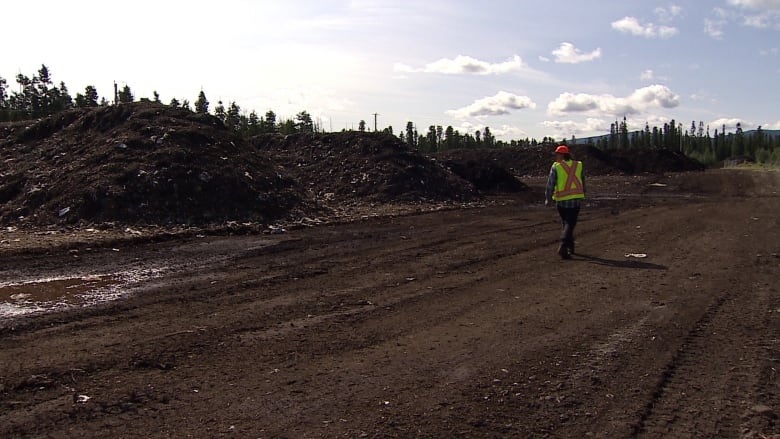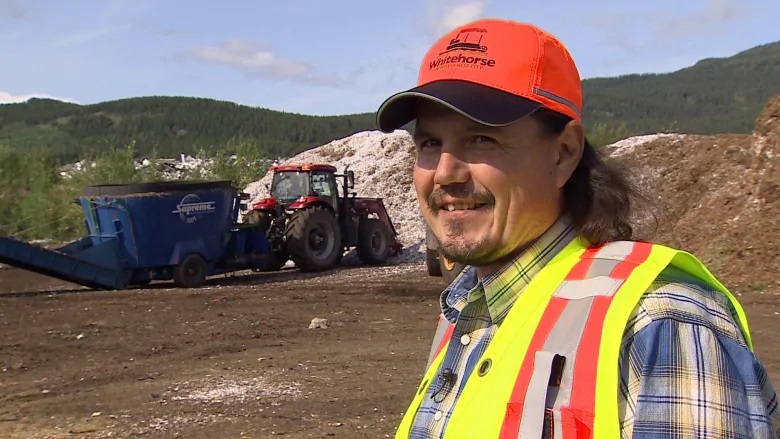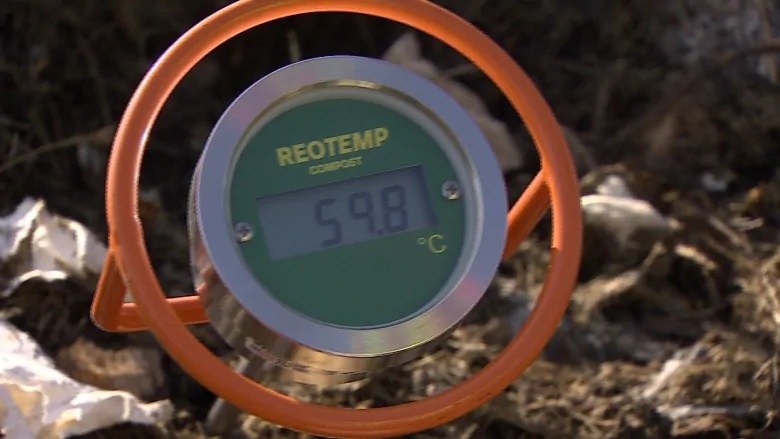Compost facility upgrades in Whitehorse, northwestern Canada to help keep up with demand

The Whitehorse compost facility is getting an upgrade as the amount of waste diverted from the landfill grows.
In 2018, about 2,800 tonnes of organic waste was diverted from the Whitehorse landfill. With the mandatory commercial organics collection program that began in January — a program that demands some businesses like grocery stores and restaurants to compost — the city is expecting another 1,000 tonnes of waste to dodge the landfill each year.
Currently it’s diverting 43 per cent of all residential waste. The city of Whitehorse is working toward a goal of diverting half of all its waste from the landfill and eventually, to become zero-waste.
A $4.8 million project will expand and upgrade the facility to keep up.
Most of it — $4.4 million — is coming from the Investing in Canada Infrastructure Program and the remainder comes from the Yukon Gas Tax fund.
A section of forest across the road from the current site will be cleared and laid with gravel to become the new screening and bagging area.

Operating since 2008, the facility is still working on bare ground.
A concrete surface will now be built. It will keep the site clean and protect the ground from organic waste runoff — which creates methane and a toxic liquid called leachate. That runoff will no longer be absorbed into the ground or trickle into a nearby pond.
“From an environmental protection standpoint, one of the significant things that we’re doing is we’re going to capture all of our runoff from the concrete pad,” said Geoff Quincey, the manager of water and waste for the city.
The runoff will be stored in a tank to reuse in the watering system.
There are currently pipes sitting above ground, used to pump air into the compost piles, which often get in the way of workers during the composting process. These pipes will be built under the concrete surface in the upgrades.
From green bin to garden
It takes about a year and a half to turn organic waste into a finished product fit for a garden.
Clay Peacock, the lead hand out at the Whitehorse compost facility, says he hopes the new expansion will cut the total time down to just one year.
People often think composting is just throwing your organic waste in a big pile and forgetting about it, said Peacock.
But compost is actually a living ecosystem and the work maintaining the ideal environment is never ending, explained Peacock.
When compost gets dumped at the facility, it gets mixed with wood chips and piled into what’s called a windrow.
“It’s a mixture of carbon and nitrogen,” said Peacock. “Our stuff that we get from the city is what we would call the nitrogen and the wood chips are what we call the carbon.”

The wood chips come from clean wood dumped at the landfill.
An enviro-processor — a machine that grinds up compost — is used to mix the carbon and nitrogen together and to give it a more uniform look, said Peacock.
There are always five windrows percolating. The first is the carbon-nitrogen mixture and the last is ready to get screened and sent out for testing.
Inside each windrow are thousands of micro-organisms living their best lives. It’s more than 50 C inside.
“In order to get it to a dirt … we need to monitor our temperatures every day, monitor our oxygen. We also have to water it pretty much on a daily basis,” said Peacock.
Every few weeks, when the newest nitrogen-carbon mix reaches maximum size, the windrows need to be mixed thoroughly.
Related stories from around the North:
Finland: Only 1 % of Finnish waste sent to landfill, Yle News
Norway: Plastic on Svalbard: “I could never believe it was this bad”, The Independent Barents Observer
Sweden: Swedish raft made from trash draws attention to plastic pollution, Radio Sweden
United States: Trump signs Alaska-backed bill targeting plastic trash in ocean, Alaska Public Media



